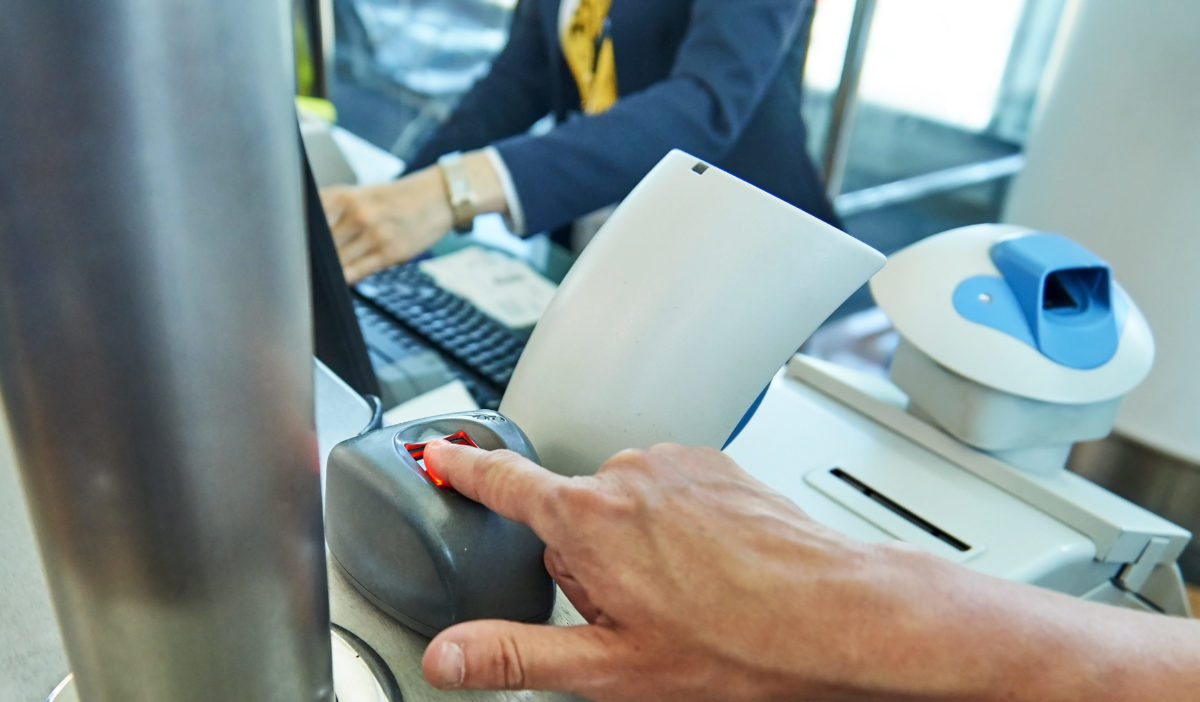We’ve all experienced the frustration of long lines at airport security – a price we pay for ensuring that all passengers obey the rules and keep flying as safe as possible.
But there are changes happening to airports, with new security being brought in. Here we look at the latest additions in security technology and some potential future developments.
E-passports
One of the first major advances in airport security that we have seen in recent years came from the so-called e-passport, or biometric passport. The first e-passport in the UK was issued in 2010 and all new passports or renewals are now provided in this format. This type of passport contains a chip which allows them to be scanned by automatic scanners at airports. This removes the need for individuals to be assessed by airport staff.
There is no doubt that automatic passport scanning has done a lot to speed up the process, and as there are more airports across the world utilising this type of technology, it is certainly beneficial that UK passports are chipped.
Facial recognition
You also may have seen new passport machines at airports which scan you face and utilise facial recognition software to establish whether your faces matches the one in the passport picture being presented.
Ultimately, the plan is to have cameras position throughout the airport that will allow individuals to check in, drop off bags and even board flights without having to show their passport. The technology is able to scan the passport chip (along with the associated photo) and then use facial recognition cameras to capture your image. When you pass through security your face should already have been recognised and matched with the passport chip on record.
However, while these technologies are already being rolled out in airports across the world. There are some
Terahertz screening technology
British business Thruvision are at the forefront of technology advances in airport security, having developed a so-called terahertz screening technology. These devices are able to scan multiple passengers simultaneously for items in clothing and bags.
The technology works by sensing heat emission from the human body which is then able visualise any hazardous objects hidden on the person. While in the past there have been criticisms of the health risk presented by this sort of product, the Thruvision devices lack artificial illumination which makes them safer.
Advanced body scanners
Another technical advance that could make a huge difference to the amount of time that it takes to pass through airport security is a more advanced body scanner. Security solutions specialists Sequestim are creating what they describe as the technology for “secure walk-through passenger screening” at airports.
Working with artificial intelligence, the company has created a scanner that is more sensitive and can allow passengers to pass through the scanners while wearing coats and without removing items from pockets.
Further advances
Some of the other ideas that have been on display at a recent technology show in London include a portable security scanner that has the ability to establish what materials an item is made of from a simple scan, presented by University College London. Whilst it is still at its development stage, the team hopes that it will soon be able to reliably find items hidden in bags without the need for x-rays.
We can look forward to many new advantages in technology being brought in that could make a big difference to our experiences at airports.
No substitute for experience
Of course, it is also notable that there are some areas of airport security that have not had – or perhaps do not need – any advances. According to Maltaward, an air services provider with experience working on projects at both Heathrow and Gatwick airports, no amount of new technology for the physical aspects of airport security. “Every project has its own specific requirements that need consideration to achieve the safety and security of the construction personnel and the public, as well as meeting compliance with the strict airport codes of practice”.
There is no technical advancement for physical security measures like concrete barriers and fencing coming along, but they remain as important to the future of airport security as any of the high-tech gadgets.
Subscribe to the IFSEC Insider weekly newsletters
Enjoy the latest fire and security news, updates and expert opinions sent straight to your inbox with IFSEC Insider's essential weekly newsletters. Subscribe today to make sure you're never left behind by the fast-evolving industry landscape.
Sign up now!


